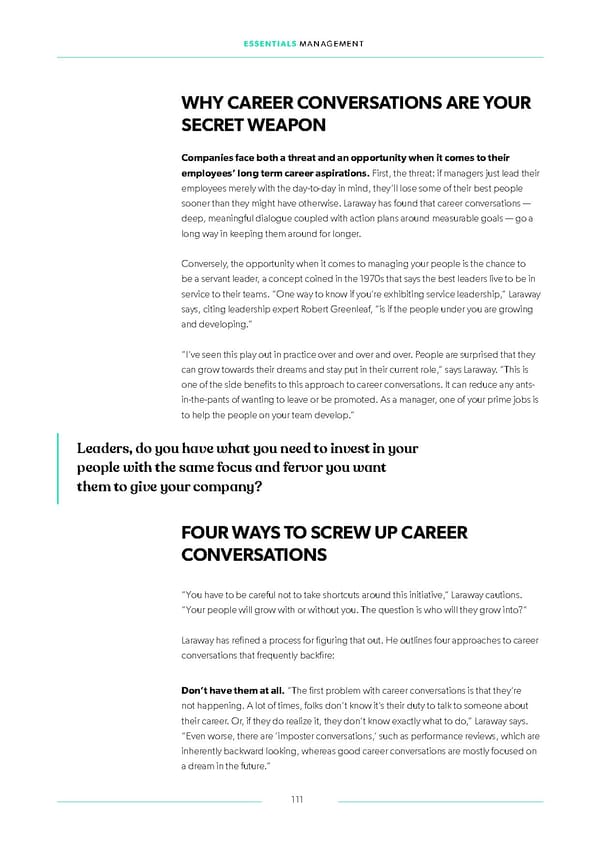ESSENTIALS MANAGEMENT WHY CAREER CONVERSATIONS ARE YOUR SECRET WEAPON Companies face both a threat and an opportunity when it comes to their employees’ long term career aspirations. First, the threat: if managers just lead their employees merely with the day-to-day in mind, they’ll lose some of their best people sooner than they might have otherwise. Laraway has found that career conversations — deep, meaningful dialogue coupled with action plans around measurable goals — go a long way in keeping them around for longer. Conversely, the opportunity when it comes to managing your people is the chance to be a servant leader, a concept coined in the 1970s that says the best leaders live to be in service to their teams. “One way to know if you’re exhibiting service leadership,” Laraway says, citing leadership expert Robert Greenleaf, “is if the people under you are growing and developing.” “I’ve seen this play out in practice over and over and over. People are surprised that they can grow towards their dreams and stay put in their current role,” says Laraway. “This is one of the side beneifts to this approach to career conversations. It can reduce any ants- in-the-pants of wanting to leave or be promoted. As a manager, one of your prime jobs is to help the people on your team develop.” Leaders, do you have what you need to invest in your people with the same focus and fervor you want them to give your company? FOUR WAYS TO SCREW UP CAREER CONVERSATIONS “You have to be careful not to take shortcuts around this initiative,” Laraway cautions. “Your people will grow with or without you. The question is who will they grow into?” Laraway has reifned a process for ifguring that out. He outlines four approaches to career conversations that frequently backifre: Don’t have them at all. “The ifrst problem with career conversations is that they’re not happening. A lot of times, folks don’t know it’s their duty to talk to someone about their career. Or, if they do realize it, they don’t know exactly what to do,” Laraway says. “Even worse, there are ‘imposter conversations,’ such as performance reviews, which are inherently backward looking, whereas good career conversations are mostly focused on a dream in the future.” 111
 Essentials Management First Round Capital Page 110 Page 112
Essentials Management First Round Capital Page 110 Page 112